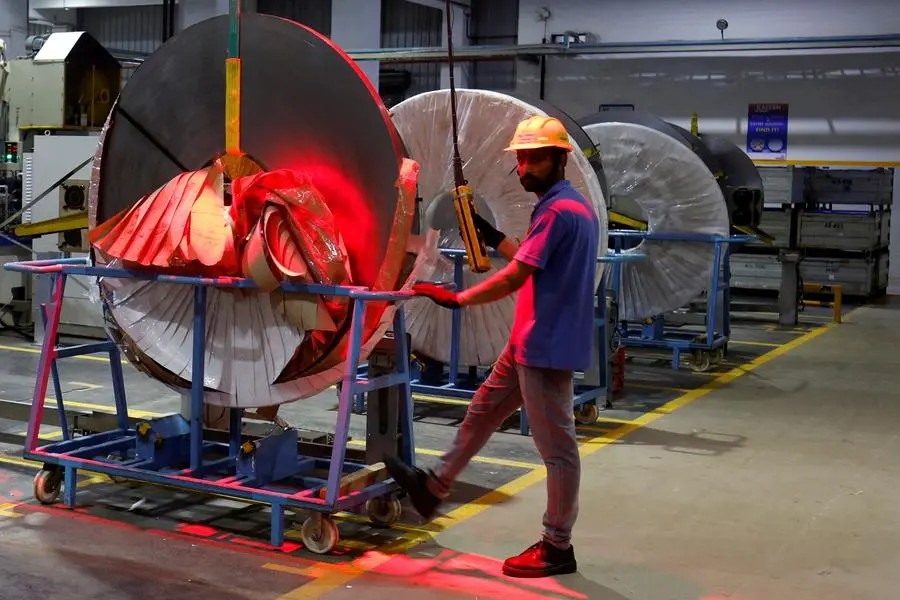PHOTO
- India's steel imports touched a five-year high in the first nine months of the fiscal year to the end of March, turning the country into a net importer of finished steel, according to provisional government data seen by Reuters on Tuesday.
A spurt in economic activity and a revamp of broader infrastructure have turned India into a bright spot for both Indian and global steel makers. Unlike India, steel demand is slowing down in Europe and the United States.
India imported 5.6 million metric tons of finished steel between April and December, up 26.4% from a year earlier, the data showed.
Steel consumption in India, the world's second-biggest crude steel producer, jumped 14.8% to a six-year high of 100 million metric tons during the period, reflecting buoyant demand for the alloy in one of the world's fastest growing economies.
India's steel demand is likely to stay strong as the government expects economic growth will outpace the global economy in the next fiscal year.
India's steel mills have called for government interventions and safeguard measures against surging imports. But, the federal Ministry of Steel has resisted calls for curbs, citing strong local demand.
"Rising imports are a concern and should be tracked closely as dumping of steel in India can hurt the profitability and hence the investment plans of the steel industry," said T.V. Narendran, chief executive of Tata Steel, India's second-biggest producer.
South Korea was the top exporter of finished steel to India between April and December, shipping 1.77 million metric tons of the alloy, up 4.4% from the same period a year earlier to hit a four-year high.
That was just above China, the world's top steel producer, whose shipments of finished steel to India reached a six-year high of 1.75 million metric tons.
India's finished steel exports were 4.7 million metric tons between April and December, the lowest in at least six years, reflecting subdued overseas demand. Crude steel output stood at 106.1 million metric tons, up 13.9% from a year earlier. (Reporting by Neha Arora; Editing by Mayank Bhardwaj and Kylie MacLellan)





















